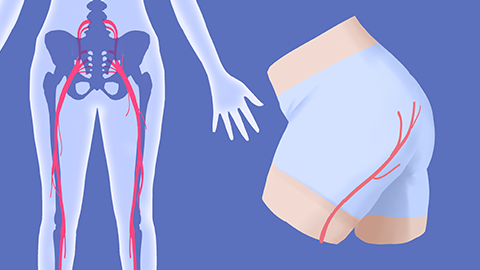What are the causes of increased vagal tone?
Under normal circumstances, increased vagal tone may be caused by excessive emotional tension, lack of sleep, gastroesophageal reflux disease, cervical spondylosis, myocardial ischemia, and other factors. If experiencing any discomfort, it is recommended to seek medical attention promptly. Detailed analysis is as follows:
1. Excessive Emotional Tension
Remaining in states of tension, anxiety, or other emotional stress for prolonged periods can stimulate vagus nerve excitation, leading to increased tone. This may be accompanied by bradycardia and dizziness. Learning to regulate emotions and relaxing the body and mind through activities such as listening to music or walking is recommended. Deep breathing exercises, performed once in the morning and once in the evening for 5-10 minutes each time, can also help relieve nervous tension if necessary.
2. Sleep Deprivation
Long-term lack of sleep can affect the regulation of the nervous system, causing abnormal increases in vagal tone, often accompanied by fatigue and poor mental condition. It is important to adjust daily routines and ensure 7-8 hours of sleep per day, avoiding staying up late. Electronic devices such as mobile phones and computers should be avoided before bedtime, and drinking a cup of warm milk may help promote sleep.

3. Gastroesophageal Reflux Disease
Gastroesophageal reflux disease can irritate the esophageal mucosa and, through neural reflexes, cause increased vagal tone, potentially accompanied by acid regurgitation and heartburn. Patients should take medications such as omeprazole enteric-coated capsules, domperidone tablets, and hydrotalcite chewable tablets under a doctor's guidance to reduce gastric acid reflux and alleviate irritation.
Cervical spondylosis can compress nerve roots, affecting neural signal transmission and leading to increased vagal tone, potentially accompanied by neck and shoulder pain and upper limb numbness. Correcting poor posture and avoiding prolonged periods of neck flexion are important. Under medical guidance, patients may take medications such as celecoxib capsules, mecobalamin tablets, and eperisone hydrochloride tablets to relieve nerve compression and inflammation.
5. Myocardial Ischemia
During myocardial ischemia, insufficient blood supply to the heart can stimulate the vagus nerve, increasing its tone, potentially accompanied by chest pain and chest tightness. Patients should take medications such as aspirin enteric-coated tablets, isosorbide dinitrate tablets, and rosuvastatin calcium tablets under a doctor's guidance to improve myocardial blood supply and stabilize the condition.
In daily life, maintaining a bland diet and avoiding overeating are recommended. Engaging in appropriate physical exercise, such as jogging or yoga, can help strengthen the body. Regular medical check-ups are also important for timely detection and treatment of underlying diseases.










